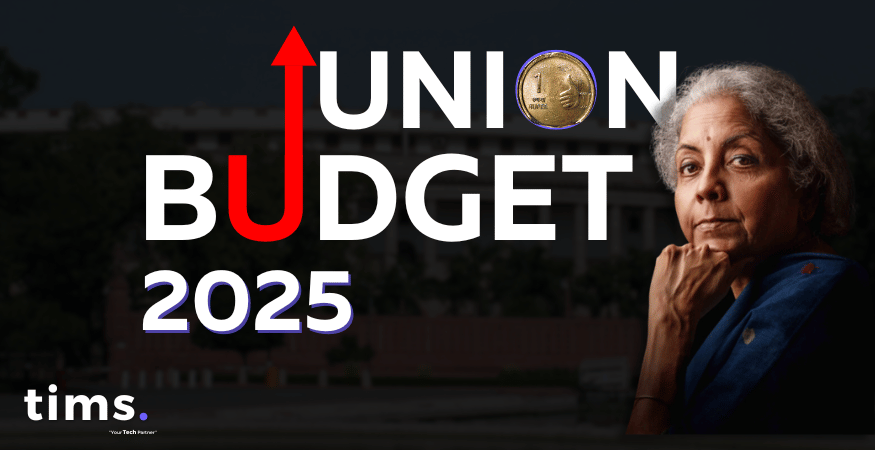Indian Taxpayers' Expectations from the 2025 Union Budget
As the Union Budget 2025 approaches, Indian taxpayers—ranging from salaried professionals to business owners—are eagerly awaiting reforms that could ease financial burdens, promote investment, and stimulate economic growth. With evolving market dynamics, global economic challenges, and India’s push towards digitalization, taxpayers are hopeful that the government will introduce progressive tax policies to encourage savings, entrepreneurship, and long-term financial security.
Here’s a comprehensive look at what taxpayers across India expect from the upcoming budget:
1. Revision in Income Tax Slabs & Rates
Taxpayers are expecting a revision in income tax slabs to ease financial burdens on the middle class and incentivize higher earnings. Key expectations include:
Raising the highest tax bracket (30%) to income levels above ₹20 lakh, instead of the current ₹15 lakh.
A more progressive tax structure, reducing burdens on lower-income groups and benefiting the salaried class.
Possible introduction of new tax brackets to bring more fairness to taxation.
Adjustments to the new tax regime to make it more attractive than the old system.
2. Increased Standard Deduction for Salaried Individuals
With inflation rising and the cost of living increasing, taxpayers expect:
An increase in standard deduction from ₹75,000 to ₹1 lakh under the new tax regime.
Enhanced tax relief for individuals who do not qualify for other exemptions like HRA, LTA, and deductions under 80C.
A higher exemption for allowances like transport and medical benefits, making taxation more employee-friendly.
3. Higher Basic Tax Exemption Limit
To improve disposable income and stimulate spending, there are demands for:
Raising the basic exemption limit from ₹3 lakh to ₹5 lakh under the new tax regime.
Expanding tax benefits to low-income groups to boost savings and economic participation.
Aligning exemptions with inflation and cost-of-living adjustments.
4. Increase in Tax Rebate Limit under Section 87A
To support middle-income groups, taxpayers expect:
An increase in the full tax rebate limit from ₹7 lakh to ₹10 lakh, effectively making income up to ₹10 lakh tax-free.
A more inclusive rebate structure that accommodates individuals with higher expenses like EMIs, education, and healthcare.
5. Higher Deductions Under Section 80C
To encourage long-term savings and investment, key expectations include:
Raising the deduction limit under Section 80C from ₹1.5 lakh to ₹2.5 lakh to promote investments in ELSS, PPF, NSC, and NPS.
Expansion of tax-saving instruments to new financial products that encourage wealth creation.
Increased incentives for long-term deposits and retirement savings schemes.
6. Clarity & Rationalization of Cryptocurrency Taxation
As India navigates the regulation of digital assets, crypto investors expect:
A revision of the 30% flat tax on cryptocurrency gains, with possible introduction of slab-based taxation.
Set-off provisions for losses incurred in digital assets, allowing adjustment against gains.
More clarity on taxation, compliance, and reporting guidelines for crypto traders and NFT investors.
7. Incentives for Homebuyers & Real Estate Sector
The real estate industry plays a critical role in economic growth. Taxpayers expect:
An increase in the home loan interest deduction limit from ₹2 lakh to ₹3 lakh under Section 24(b).
Lower GST rates on under-construction properties to make housing more affordable.
Enhanced tax benefits for first-time homebuyers to boost home ownership.
Increased deductions for home rental expenses, benefiting tenants in metro cities.
8. Boosting Startup & MSME Tax Benefits
The real estate industry plays a critical role in economic growth. Taxpayers expect:
Reduced corporate tax rates for MSMEs and early-stage startups.
Tax holiday extensions for startups to allow longer periods of growth.
Simplified GST and TDS compliance for small businesses to ease administrative burdens.
Higher deductions for R&D expenses and digital transformation initiatives.
9. Greater Tax Benefits for NPS & Health Insurance
The real estate industry plays a critical role in economic growth. Taxpayers expect:
Expansion of NPS benefits under the new tax regime to increase retirement savings.
An increase in health insurance deductions under Section 80D from ₹50,000 to ₹1 lakh to encourage higher medical coverage.
Additional tax incentives for family healthcare expenses, wellness programs, and preventive healthcare investments.
10. Relief on Capital Gains Taxation
To promote investment and wealth creation, investors expect:
A simplified long-term and short-term capital gains tax structure, reducing tax complexity.
Lower tax rates on equity investments, mutual funds, and real estate gains.
Adjustments to holding periods for different assets to promote longer-term investing.
11. Faster Digitalization & Quicker Refunds
With digital tax reforms progressing, taxpayers are demanding:
Faster tax refunds and dispute resolution mechanisms to reduce waiting times.
AI-driven assessments and automated tax audits to increase efficiency and transparency.
Expansion of faceless assessment systems to minimize tax litigation and manual errors.
A seamless GST refund process for businesses, reducing compliance burdens.
12. Rationalization of GST and TDS Compliance
Businesses and professionals seek simpler GST and TDS structures to improve compliance:
Reduced GST on essential services and lower compliance costs for SMEs.
A single, unified TDS structure for freelancers, consultants, and small businesses.
Easier tax filing procedures with auto-populated forms and AI-assisted tax filing systems.
Conclusion
The 2025 Union Budget presents an opportunity to reshape India's tax landscape with a strategic mix of:
Tax relief for individuals to increase disposable income.
Investment-friendly policies to promote wealth creation.
Business incentives to fuel entrepreneurship and MSME growth.
Digital transformation to modernize tax administration and compliance.
A well-balanced tax policy can boost economic growth, ensure fairness, and simplify compliance for taxpayers across India. As the budget announcement approaches, all eyes are on potential reforms that could enhance financial security and create a more inclusive tax system.









